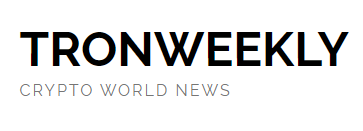The blazing speed at which modern blockchains process transactions is no accident. It’s the result of years of innovation aimed at solving the biggest headaches of early networks like Bitcoin — slow confirmations and high fees. Today’s high-speed blockchains move digital assets in seconds, not minutes, and that’s rewriting the rules for entire industries. From instant payments to real-time data tracking, supercharged blockchain speeds aren’t just impressive — they’re unlocking new ways to do business, cut costs, and satisfy customers across the board.
Select Industries Benefit From Seamless Crypto Payments
In the modern world, there are a number of industries that have led the charge with adoption of crypto payments. Among them, eCommerce, software, and gaming stand out. With massive platforms like Shopify and Microsoft allowing consumers to make online purchases using crypto, they have gone a long way toward helping its credibility but relying on crypto’s high-speed transactions to do so.
On the other hand, nowhere is crypto speed more essential than in iGaming, where players want their funds available the moment they click deposit. Platforms like SambaSlots.com, an iGaming site that accepts crypto payments, are using high-speed blockchains to make deposits and withdrawals get processed nearly instantaneously.
Whether players are funding their accounts with Bitcoin, Ethereum, or faster chains like Solana, those transactions clear in seconds — no waiting around for banks or payment processors to catch up. This platform and others like it thrive on blockchain’s speed not just for payments, but also for the games themselves. Real-time wagers, live dealer games, and instant jackpot payouts all depend on transactions that fly across the network.
Slow speeds lead to frustrated players, but blockchain’s super-fast confirmations create smooth, seamless experiences. Even withdrawals — the true test of any platform’s reliability — become faster and easier, giving players confidence that their winnings are always within reach.
By cutting out third-party payment processors, iGaming platforms save money too. Lower fees, faster payments, and transparent transaction histories all work together to create a player-first environment that’s faster, fairer, and cheaper to operate.
Supply Chain Management Gains New Levels of Transparency and Speed
Blockchain’s speed isn’t just about financial transactions. In global supply chains, where goods change hands across countries and continents, keeping up with every step in real time is a game-changer. With today’s faster blockchains, each shipment update can be instantly recorded on-chain, giving companies and customers a crystal-clear view of where products are at any moment.
In industries like pharmaceuticals, food safety, and luxury goods, speed and transparency are essential. Blockchain can confirm delivery times, track cold storage conditions, and even authenticate the origins of high-value items. Faster blockchains mean those updates happen in seconds, not days, eliminating costly delays and making it harder for counterfeit products to slip through unnoticed.
Decentralized Finance (DeFi) Thrives With Instant Transactions
The explosive rise of decentralized finance (DeFi) would have been impossible without high-speed blockchain technology. Lending, staking, trading, and yield farming all depend on transactions that happen fast enough to make real-time decisions possible.
Faster blockchains have fueled DeFi’s growth by creating low-latency environments where capital can move at lightning speed. Investors can capitalize on arbitrage, traders can react instantly to market swings, and the entire system becomes more liquid and efficient.
The Rise of Instant Cross-Border Payments
One of the most visible benefits of fast blockchains is the transformation of cross-border payments. Traditional international transfers — clogged with middlemen, fees, and multi-day processing times — are no match for blockchains that clear global transactions in seconds.
This is a massive win for anyone sending remittances, running international e-commerce stores, or working with overseas clients. Faster speeds mean fewer delays, lower fees, and real-time transparency, giving both sides confidence their payments will arrive intact and on time.
For businesses, the ability to move money instantly across borders isn’t just convenient — it’s a competitive advantage. From just-in-time supplier payments to real-time revenue splits, high-speed blockchains are turning payment friction into a thing of the past.

 7 months ago
45
7 months ago
45




 English (US) ·
English (US) ·